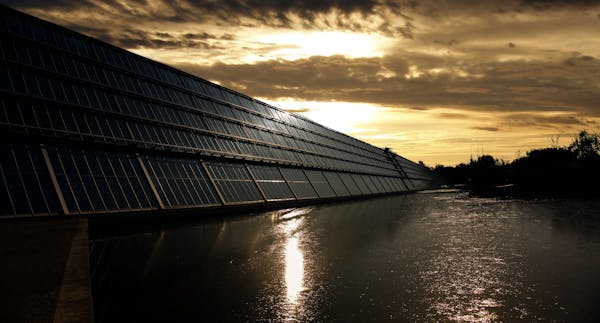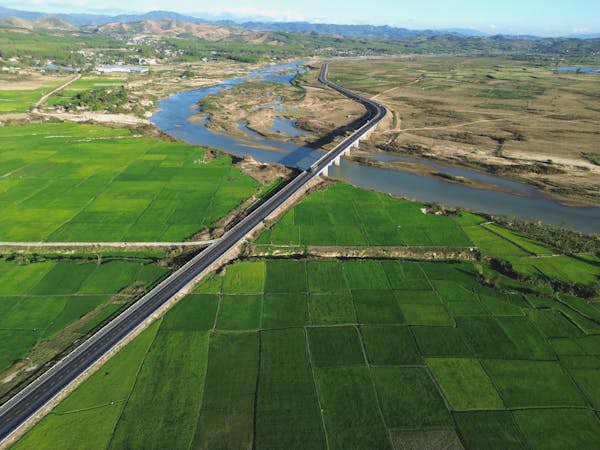In the modern world faced with the imminent duty to fight against climate change, technology stands at an important turning point in the fight for a greener future. The term "Climate tech" defines all the innovations devised to mitigate or adapt to the impacts of a changing climate.
Climate tech has just emerged as one of the most important sectors in the global economy. Be that with renewable energy solutions, carbon capture, or sustainable agriculture, climate tech disrupts industries and presents new beacons of hope in mankind's quest to reverse environmental damage.
Climate tech has just emerged as one of the most important sectors in the global economy. Be that with renewable energy solutions, carbon capture, or sustainable agriculture, climate tech disrupts industries and presents new beacons of hope in mankind's quest to reverse environmental damage.
Following is an article wherein we discussed what arguably could be some of the most promising climate tech trends likely to shape the future of sustainability in times to come.

1. Carbon Capture and Storage: A Breakthrough in Emission Reduction
Of the hyped technologies in climate tech, perhaps none beats carbon capture and storage.
This technology captures carbon dioxide from industrial processes and power plants, then stores it underground in geological formations to prevent its appearance in the atmosphere. In a world where countries have mostly failed to meet their set targets of cutting emissions, CCS has become key in reducing the amount of greenhouse gases in the atmosphere.
This technology captures carbon dioxide from industrial processes and power plants, then stores it underground in geological formations to prevent its appearance in the atmosphere. In a world where countries have mostly failed to meet their set targets of cutting emissions, CCS has become key in reducing the amount of greenhouse gases in the atmosphere.
Companies like Climeworks continue to develop this technology of direct air capture of CO2 from the atmosphere, while Carbon Clean works to develop low-cost solutions for carbon capture in heavy industries related to cement and steel making. Indeed, such technologies hold immense potential for those sectors where completely nullifying emissions is rather difficult.
2. Renewable Energy Innovations: Pushing the Boundaries

Going forward, the transition from fossil fuel sources to renewable sources will be imperative in a low-carbon economy. In recent ten years, renewable energy technologies have taken a leap-forward in solar, wind, and hydro leading this wave, but climate tech innovations are pushing those boundaries even further.
Among these, floating solar farms represent almost an entirely new development area for solar energy. Ordinarily, solar farms are installed on bodies of water to minimize demand for land and further increase their efficiency due to the cooling effect of water.
Another recent critical innovation is the invention of Enhanced Geothermal Systems. EGS involves the drilling deeper into the earth's crust, compared to previous systems of geothermal electrical generation, to capture more heat. This could even make it a continuous, reliable supply of clean energy, unlike wind or sun, whose generation hours are entirely dependent on the whims of nature.
Another recent critical innovation is the invention of Enhanced Geothermal Systems. EGS involves the drilling deeper into the earth's crust, compared to previous systems of geothermal electrical generation, to capture more heat. This could even make it a continuous, reliable supply of clean energy, unlike wind or sun, whose generation hours are entirely dependent on the whims of nature.
Equally important is another area of development: that of battery storage. Companies such as Tesla and CATL continue to evolve the technology of batteries towards better storage of renewable energy so that the energy supply can always be reliable and available when the sun does not shine or the wind does not blow.
3. Sustainable Agriculture: Feeding the World without Destroying It

Agriculture is responsible for nearly a quarter of the world's greenhouse gas emissions, but that is slowly beginning to change due in part to climate tech. Precision agriculture deploys satellite imagery, sensors, and AI to monitor crop health for the best use of water, fertilizers, and pesticides, producing high yields with fewer resources.
Another exciting development is that of vertical farming. This is a form of farming involving crops grown in vertically stacked layers in controlled high-efficiency land and water usage with no use of harmful pesticides. These could also be built more proximal to urban centers, reducing the carbon footprint from long-distance transportation of food.
Other fast-growing industries: regenerative agriculture-similar to cover cropping and reduced tilling that fosters soil health-but also for carbon sequestration and ecosystem resilience.
4. Transportation Electrification: Driving Towards a Cleaner Future
Transportation is one of the largest contributors to global emissions, and there is a way to change that course: electrification. The roads are gradually but definitely getting full with EVs from corporations such as Tesla, Rivian, and NIO, which really pioneered feasible and operational electric cars. But the movement of electrification extends beyond passenger cars.
Already, cities are deploying electric trucks and buses, further reducing the share of emissions accounted for by heavy-duty transportation. Even aviation is studying electrification: prototypes of electric aircraft-prototypes at Eviation and Joby Aviation-may be leading an upheaval in air travel over the coming couple of decades.
Meanwhile, charging infrastructure is growing at a rapid pace. In addition to public charging stations, wireless charging technology under development by companies would give EVs the capability of automatic charging on the go, further making electric transportation even more hassle-free.
5. Energy-Efficient Buildings: Smart and Sustainable Living
That would account for roughly 40% of the world's energy consumption going into buildings, while climate tech is revolutionizing the way it is designed, constructed, and operated. Smart buildings tap into IoT devices and sensors combined with AI that make sure energy usage is optimized with less waste and lower emissions.
Greener buildings from the ground up are made with energy-efficient materials, using green building technologies such as solar roofs and heat pumps.
Greener buildings from the ground up are made with energy-efficient materials, using green building technologies such as solar roofs and heat pumps.
Besides, retro-fitting with energy-efficient technologies already-built buildings is also many times more cost-effective means of reducing emissions. Companies specializing in building energy management systems are helping businesses and home owners cut energy bills and carbon footprints-with comfort and better air quality.
End: Climate Tech as a Force for Change
The climate crisis is a condition now desperately needing some serious, bold action; climate tech stands at the forefront in delivering such solutions capable of saving our planet. From carbon capture, renewable energy, to sustainable agriculture, or transport electrification, innovations in climate technology are remodeling industries and helping us move toward a net-zero future.
New unparalleled technologies will be at the fore in sorting out the global challenge that is climate change. In accepting these innovations, we heed the call to protect the environment and thus create a sustainable world for a prosperous future ahead.






